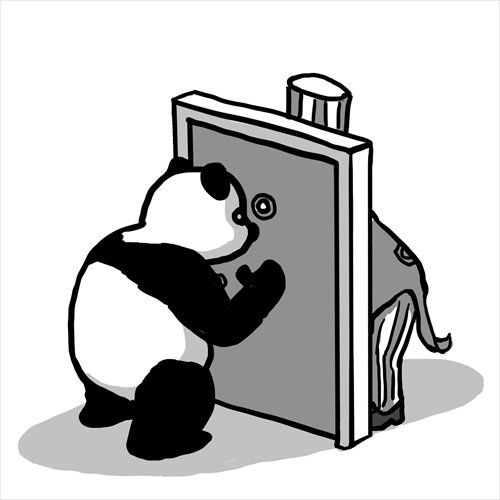HOME >> OP-ED
Sino-US tensions deeply lie in their different core interests
By Ding Gang Source:Global Times Published: 2014-8-14 0:38:02

Illustration: Liu Rui/GT
The South China Sea issue is a microcosm of difficulties in the current Sino-US relationship. And it is through this issue that we can see the extent of mutual distrust between the two powers.
On Tuesday, US Secretary of State John Kerry made a comment in Sydney that Washington was not interested in conflict with Beijing. "We welcome the rise of China as a global partner […]" He said. "We are not seeking conflict and confrontation. And our hope is that China will likewise take advantage of the opportunities that are in front of it and be that cooperative partner."
This diplomatic rhetoric is not completely in accordance with Washington's China policy. The "rebalance to Asia" strategy itself does include considerations of containing China.
The US seeks to consolidate its presence in this region through strengthening military alliances, which inevitably calls for an imaginary foe.
Moreover, the political standards that Washington has been promoting in this region are in potential confrontation with China's political system.
These two characteristics decide that the Sino-US mutual distrust might be a long-term issue. And they are also the difficulties the two countries have to face in constructing a new type of major power relationship.
Washington's strategic goal is to protect its core interests in Asia, which is in line with its core interests across the world. In this regard, the most important thing is not merely the global order built and led by the US, but also the political rules and concepts under this order.
The US-led West believes it is this order, combined with the political rules built upon it, that ensures the vigorous development of globalization.
The South China Sea issue mirrors Washington's strategic calculations. The US is deeply aware that there might be frictions in the South China Sea, but the region is not likely to fall in a war. Therefore, the question is not whether there will be battles or whether the freedom of navigation can be ensured. Instead, it is a question of how to regulate China.
The US proposal for a "freeze" on provocative acts in the South China Sea is essentially aimed at regulating China and demonstrating to regional countries that the US is still capable of balancing and regulating China. This is what is most unacceptable to Beijing.
So far the US hasn't found a way to deal with a China with increasing power but a different political system, nor could it appeal to past experience and theories.
As a result, no matter how Washington adjusts its China policy, there are constant calls to take precautions against or restrict China.
The tricky difficulty is that whether China means to or not, its growing strength will inevitably cause clashes with the existing order and force it to make certain adjustments.
The gap in national strength between China, which is in a period of rapid development, and other Asian nations is increasingly apparent.
The US is concerned about an increasingly diversifying Asia in which it has to share dominance. And it is concerned about China, which has jumped out of the established logic in the West in terms of national political development.
China has its own concern too. China's core interests are not just about territory, but equally importantly about domestic stability.
Across the Pacific, China also maintains keen vigilance on the potential influence of Washington's policy on China's internal stability.
The more the US seeks to balance China, the larger China's concern will grow, and therefore the stronger Beijing's response against the "rebalance" strategy will be.
The troubles in Sino-US relations are deeply linked to their different core interests. In order to boost their bilateral ties, the two countries need to properly deal with and prudently manage potential frictions in their core interests.
Washington should reduce negative elements in its China policy that might stir up confrontation with China and undermine China's political stability. Meanwhile, China doesn't need to overestimate US influence on its domestic stability and should handle its relationship with the US in a more confident way.
The author is a senior editor with People's Daily. He is now stationed in Brazil. dinggang@globaltimes.com.cn. Follow him on Twitter at @dinggangchina
Posted in: Columnists, Ding Gang, Viewpoint